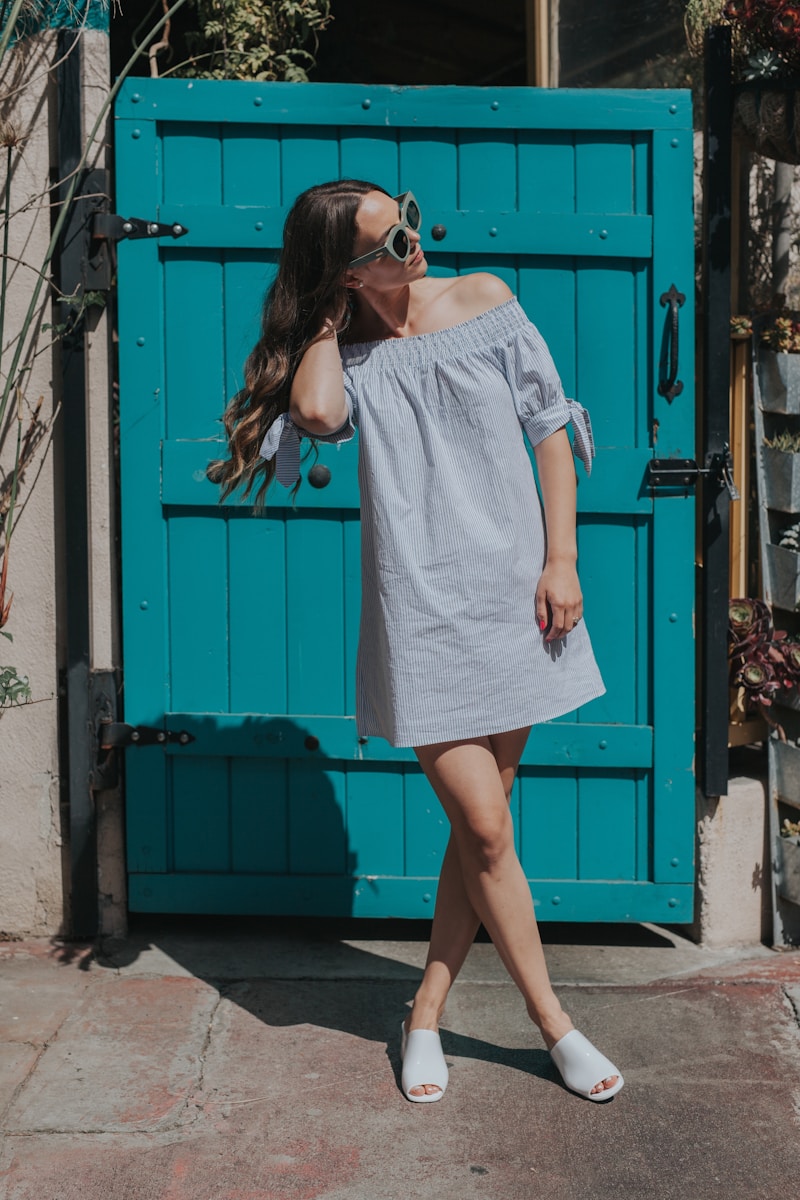Dressing with Personality: How to Express Yourself Through Fashion
Introduction to Dressing with Personality
In a world where first impressions matter, dressing with personality has become a powerful form of self-expression. The way you dress not only reflects your style but also your individuality and mood. It can influence how others perceive you and even how you perceive yourself. This article will dive deep into the concept of dressing with personality, offering tips, insights, and practical advice on how to curate a wardrobe that authentically represents who you are.
The Importance of Personal Style
Your personal style is a unique narrative that tells the world who you are. It's not just about following trends but about acknowledging your preferences, lifestyle, and the image you want to project. Dressing with personality is essential because:
- Boosts Confidence: Wearing clothes that resonate with your true self can enhance your self-esteem.
- Enhances Creativity: Personal style allows for creativity and experimentation, encouraging you to explore different looks.
- Builds Trust: Authenticity in your appearance fosters trust and relatability with others.
Understanding Different Elements of Personal Style
To successfully dress with personality, it's crucial to understand the various elements that come into play:
1. Color Psychology
Colors can evoke emotions and set the tone for your outfit. For instance, wearing red may signify power or passion, while blue often represents calmness and professionalism. Experiment with different colors to see how they affect your mood and the impressions you make.
2. Fabrics and Textures
The fabrics you choose can also communicate your personality. Soft textiles like cotton and silk exude comfort, while leather and denim can showcase a more rugged or edgy side. Mixing textures can create depth and interest in your outfit.
3. Accessories
Accessories like jewelry, bags, and shoes can elevate your look and add personal flair. They are also a great way to showcase your interests or values. For example, handmade jewelry may reflect a love for artisan crafts.
4. Fit and Silhouette
The way clothes fit your body can dramatically influence your overall appearance. Tailored pieces can showcase professionalism, while oversized garments can portray a casual and relaxed vibe. Find silhouettes that compliment your body shape and style preference.
5. Signature Pieces
Consider incorporating signature pieces into your wardrobe. These could be a particular item of clothing, like a vintage leather jacket or a statement necklace that you wear frequently. Signature pieces anchor your style and make it instantly recognizable.
| Elements of Personal Style | Influence on Personality |
| Color | Sets Mood and Emotion |
| Fabrics | Communicates Comfort/Edginess |
| Accessories | Shows Interests/Values |
| Fit | Affects Overall Appearance |
| Signature Pieces | Anchors Style |
Developing Your Personal Style
Now that you understand the elements of personal style, it's time to develop your wardrobe. Here are some practical steps to guide you:
1. Assess Your Current Wardrobe
Start by evaluating your current clothing items. Identify what you wear frequently, what makes you feel good, and what you rarely touch. This process helps to declutter your closet and understand your style preferences.
2. Discover Inspiration
Look for inspiration through fashion blogs, magazines, social media, and style icons. Create a vision board to visualize the looks that resonate with you. Ensure that the inspiration aligns with your sense of identity rather than merely following trends.
3. Experiment and Have Fun
Dressing with personality should be a playful experience. Experiment with different combinations and styles. Don't be afraid to break fashion rules; mixing patterns, layering, or trying bold accessories can lead to exciting discoveries.
4. Invest in Versatile Basics
Building a wardrobe of versatile pieces is essential for transforming various looks. Items like a classic white shirt, a tailored blazer, or a pair of well-fitted jeans can serve as foundations for countless outfits.
5. Personalize Your Wardrobe
Once you've established your core pieces, it's time to introduce personality. Integrate unique items that reflect your interests, such as a graphic tee of your favorite band or a colorful scarf that ties your outfit together.
Your Unique Expression through Fashion
Dressing with personality goes beyond clothing; it is about how you express your identity. Consider the following:
1. Cultural Influences
Your cultural background plays a significant role in shaping your fashion choices. Incorporating traditional garments or textiles can create a unique blend of contemporary and cultural fashion.
2. Lifestyle Considerations
Your lifestyle should also influence your wardrobe choices. Having a busy schedule may call for comfortable yet stylish outfits that transition well from day to night. Opt for pieces that suit your routines while still showcasing your personality.
3. Age Appropriateness
While personal style should remain authentic, it's essential to consider age appropriateness. Trends change, but you can adapt styles to suit your age wisely, making it a unique yet age-appropriate expression.
Dressing with Personality: Key Takeaways and Tips
As you embark on your journey to dress with personality, remember the following:
- Stay Authentic: Your style should resonate with your true self.
- Be Open to Change: Personal style evolves; be flexible and embrace growth.
- Invest Wisely: Quality pieces may cost more but can add longevity and value to your wardrobe.
- Have Fun: Make your dressing experience a joyful exploration of your creativity.

Conclusion
Dressing with personality is an art that encapsulates who you are at your core. By understanding the elements of personal style, you can confidently curate a wardrobe that showcases your uniqueness. Remember, the journey toward finding your personal t style is ongoing; embrace it with an open heart and a playful mindset. Ultimately, your wardrobe serves as a canvas that reflects your essence, allowing you to communicate without uttering a word.